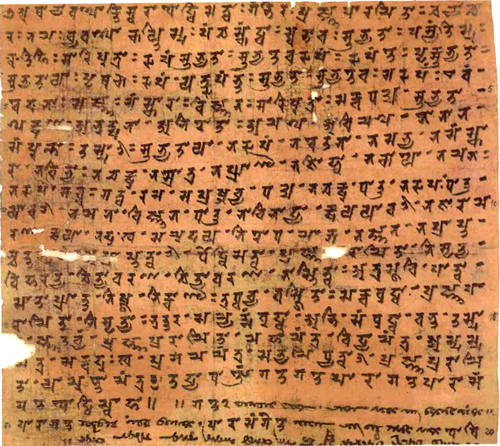Sanskrit Reading Workshop
341 Dwinelle Hall
Professor Alexis Sanderson, Emeritus Professor of Sanskrit, Oxford University
This two-day workshop will offer Sanskrit scholars across the Bay Area the opportunity to engage deeply with Mīmāṃsā, the preeminent school of Indian hermeneutics, while thinking more broadly about the state of philology in the field of South Asian Studies. Organized by Lisa Brooks, Kashi Gomez, Priya Kothari, and Janet Um, the workshop will take up the issues of scriptural interpretation, philology and methodological recuperation.
Our proposed engagement with mīmāṃsā stems from two key concerns. Firstly, while mīmāṃsā initially emerged as the discipline of Vedic exegesis, it was further developed into a more diffuse theory of language which finds its way into a wide array of genres, from ritualistic texts and scientific treatises to exegetical discourse, poetics and literary commentary. Secondly, in recent years, leading scholars have cast mīmāṃsā as the philological school par excellence of premodern India.
As such, we have identified philology as one of the key disciplines of South Asia studies. We recognize that mīmāṃsā continues to shape how we read Sanskrit texts in modernity and engage in discourse about Indic traditions and Hindu and Buddhist theology and practice. This workshop is a unique opportunity to enrich our own textual engagements and encourage discussion about the potentials and limits of such philological recuperation efforts in the field of Indology. With these goals in mind, we pose the following workshop questions: What does it mean to cast the mīmāṃsā school of scriptural interpretation as an Indic philology? And what does it mean to claim philology as the pre-eminent mode of engagement with Sanskrit texts?
Friday, October 4
3 – 5:30 pm Reading Session 1
5:30 – 6:30 pm Reception
Saturday, October 5
9:30–12:30 pm Reading Session 2
12:30–2 pm Lunch
2 – 4 pm. Reading Session 3
Alexis G. J. S. Sanderson is a renowned Sanskrit scholar and Indologist. Professor Sanderson most recently held the Spalding Chair of Eastern Religions and Ethics at the University of Oxford and is an Emeritus Fellow of All Souls College at Oxford. He has published extensively on the history, significance and development of Shaivism.
Cosponsored by the Department of South and Southeast Asian Studies, the Group in Buddhist Studies, the Institute for South Asia Studies, the South Asia Studies Theories and Methods Townsend Working Group and the Berkeley Center for the Study of Religion.

